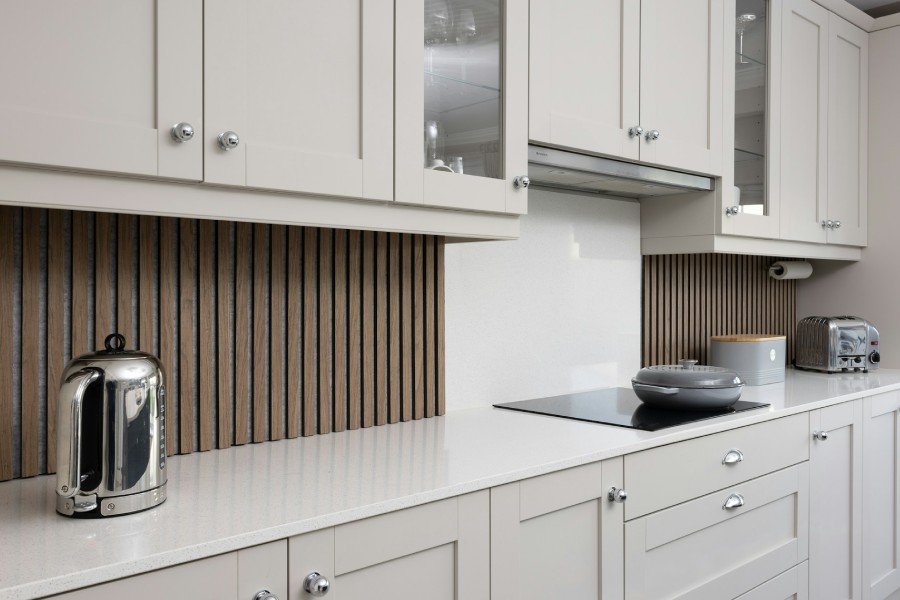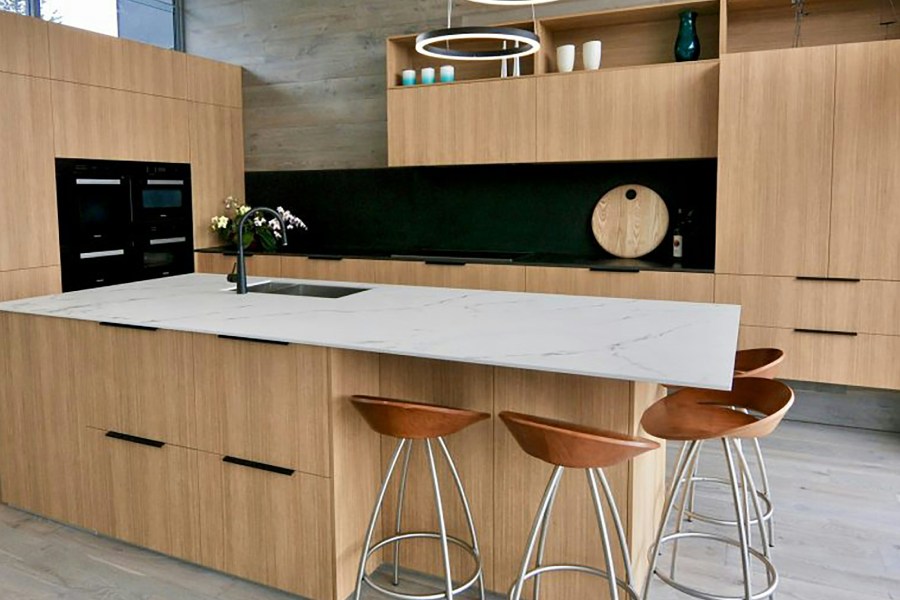Renovating your kitchen can be an exciting yet daunting task, especially when it comes to balancing aesthetics, functionality, and budget. As the heart of many homes, the kitchen often requires updates to keep up with changing styles and family needs.
One common dilemma homeowners face is whether they can replace kitchen cabinets without replacing countertops. This often stems from several factors – the countertops are still in excellent condition, hold sentimental value, or replacing them might simply exceed the budget. So, can you replace kitchen cabinets without replacing countertops?
In this article, we’ll explore the possibilities, challenges, and considerations involved in updating your kitchen cabinets without disturbing your current countertops. Whether you’re looking to refresh your kitchen’s appearance or improve its storage solutions, understanding your options is the first step towards a successful renovation.

Can You Replace Kitchen Cabinets Without Replacing Countertops
Yes, it is possible to replace kitchen cabinets without replacing the countertops. This approach can be an excellent way to update your kitchen’s look and functionality while keeping costs down. Many homeowners choose this option when their countertops are still in good condition or when they have specialty countertops they want to preserve. However, replacing cabinets while keeping existing countertops does present some challenges.
If you’re wondering how can I replace cabinets without replacing the countertop, be aware that the process requires careful planning and precise measurements to ensure the new cabinets fit perfectly under the existing countertop. Consider potential countertop damage during cabinet work, which may require professional help.
Benefits of Replacing Cabinets Only
Knowing the benefits of replacing only cabinets will help guide your decisions better. Here is a list of benefits of replacing just the cabinets:
Cost savings
Retaining existing countertops can lead to substantial cost savings in a kitchen renovation project. Countertops, especially high-end materials like granite or quartz, can be a significant expense. By keeping the current countertops, homeowners can allocate more of their budget towards quality cabinetry or other kitchen upgrades.
Additionally, preserving the countertops eliminates associated costs such as removal, disposal, and installation of new surfaces. This approach reduces the need for additional tradespeople. Plumbers or electricians might otherwise be required to disconnect and reconnect fixtures and appliances during a full countertop replacement.
Time efficiency
Replacing only the cabinets can significantly reduce the overall project timeline. Countertop removal, fabrication, and installation can be time-consuming processes, often taking several weeks. By skipping these steps, the renovation can be completed much faster, allowing homeowners to enjoy their updated kitchen sooner.
Moreover, keeping the existing countertops simplifies the project scope. This potentially reduces delays caused by material sourcing or custom fabrication. This streamlined approach can be particularly beneficial for those who need their kitchen functional as quickly as possible.
Less disruption
Maintaining the current countertops minimizes the disruption to daily life during the renovation. Without the need for extensive demolition work, there’s less dust, debris, and noise. This can make the renovation process more tolerable, especially for families who may need to use parts of the kitchen during the project.
Furthermore, keeping the countertops in place reduces the risk of damage to other areas of the home. There’s less need for protective coverings and less foot traffic from workers, which can help preserve flooring and nearby spaces. This approach also typically requires fewer days of complete kitchen inaccessibility.
Challenges and Considerations
Potential damage
Removing old cabinets and installing new ones while preserving existing countertops carries a risk of damage. The process of detaching cabinets from countertops can cause chipping, cracking, or scratching, especially with delicate materials like natural stone.
Professional installers experienced in this type of renovation can significantly reduce the likelihood of damage. However, homeowners should be prepared for the possibility that some repairs or touch-ups might be necessary.
Matching styles
Selecting new cabinets that complement existing countertops can be challenging, especially if the countertops have a distinctive pattern or color. The new cabinets need to harmonize with the countertops and the overall kitchen aesthetic.
To address this, homeowners might need to explore various cabinet styles, finishes, and hardware options. It may be helpful to work with a kitchen designer who can provide expert advice on creating a cohesive look.

Structural support
Ensuring that new cabinets provide adequate support for existing countertops is critical. Different countertop materials have varying weight requirements, and the new cabinets must be capable of bearing this load safely.
In some cases, additional reinforcement may be necessary, especially if the layout of the new cabinets differs significantly from the old ones. A structural assessment might be required to ensure the new configuration can properly support the countertops.
Conclusion
In conclusion, as with any home improvement project, success lies in thorough planning and, when necessary, seeking professional help. So, can you replace kitchen cabinets without replacing countertops?
This article has helped you understand that you can indeed replace kitchen cabinets without replacing countertops, offering a viable option for kitchen updates. While this approach presents its own set of challenges, the benefits of cost savings, time efficiency, and reduced disruption often outweigh the hurdles.
By carefully considering the potential risks and planning accordingly, homeowners can achieve a fresh kitchen look without the need for a complete overhaul. Whether you’re working with a tight budget or simply love your current countertops, replacing cabinets alone can be a smart renovation strategy.


